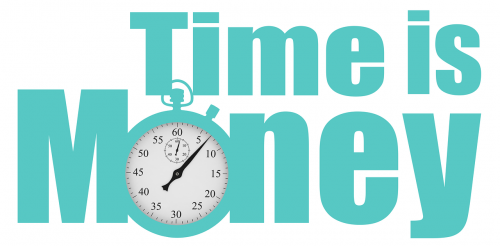by Hope
If I had a hard time with the beginning of our book, this chapter completely turned it around for me! I enjoyed the description of asking the audience to define money. But even moreso, the definition of money.
Money is something you trade your life energy for.Your Money or Your Life Joe Dominguez and Vicki Robin
Seriously. We all know that, but I never would have thought to use it as the definition of money. But it’s perfect, and truly encompasses the role money plays in our lives. What do you think about this money definition?
Your Real Hourly Wage
This immediately brought up the task of calculating your “real hourly wage.” Again, this process is logical, but we don’t always or often think about it in this context.
But my mind was blown away as I really started thinking about all the “money” categories that are so closely tied to work. We all know our wardrobe is affected and commute costs, but I don’t think we always factor in the time tied to those things. It put work in a whole different perspective for me.
Track Your Income and Spending
The second task in this chapter is more straight forward: track every cent which I began doing just as soon as I read this chapter so I would be ready to do the work after reading the book through the first time. Did you start tracking then too?
I set up a basic spreadsheet on my phone and input every penny that went out and came in. This included money spent from rewards, gift certificates and gift cards. I won’t be able to reconcile the spending with any bank records, but for the purposes of this book, I have a 100% complete view of where my money goes in every form.

What is Worth Trading Your Life For?
My big, giant take away from this chapter really came with the money definition. As long time readers know, my work situation over the last few years has been pretty miserable, especially this past year when I stepped back into the corporate world. The joy and passion that filled my life previously has been drained.
I realize that much of that is the result of the ginormous amount of stress I’ve been under financially with job loss and being a single mom, but even moreso, I feel like I’ve given up so much of what I’m passionate about. I am no longer fostering kids. I am no longer homeschooling my kids. I’m not teaching at our homeschool co op anymore.
Instead of working to live, my life seems to be more of a working to live scenario know. It has made me pretty miserable. This book has really put that into perspective for me. How am I spending my life energy? And does it matter at the end of the day?
This has given me a new perspective and a new boldness if you will as I approach my job search. Trying some new tactics, new approaches, we will see if they pay off. (More on that in another post.)
Discussion Questions
Are you earning what you are worth? Elaborate.
What belief about money keeps you from being, doing or having what you want? Why?
Previous Book Club Posts
Your Money or Your Life Introduction
Chapter 1: What is Your Enough?
Chapter 2: What are you Trading Your Life Energy For?
Chapter 3: The Opposite of a Budget
Chapter 4: Coming Monday, May 21st

Hope is a creative, solutions-focused business manager helping clients grow their business and work more efficiently by leveraging expertise in project management, digital marketing, & tech solutions. She’s recently become an empty nester as her 5 foster/adoptive kids have spread their wings. She lives with her 5 dogs in a small town in NE Georgia and prefers the mountains to the beaches any day. She struggles with the travel bug and is doing her best to help each of her kids as their finish schooling and become independent (but it’s hard!) She has run her own consulting company for almost twenty years! Hope began sharing her journey with the BAD community in the Spring of 2015 and feels like she has finally in a place to really focus on making wise financial decisions.


Creating a good work life balance is by far one of the most complicated portions of adulthood. It gets even more dodgy when you have other human beings depending on you to provide for all their needs (physical, emotional, spiritual and financial). There have been times in my life where I have had to work at jobs that I was less than passionate about in order to pay the bills. Fortunately for me that meant it was easy for me to set boundaries and not set myself up to be living to work rather than working to live. The jobs that were the hardest for me to set boundaries for were jobs I actually enjoyed and was passionate about. I needed to remind myself that my family also deserved my time and energy in equal measure. I felt guilty when I was working that I was missing pieces of my children’s lives. At some point we realized that most of the money I was earning was going to childcare. At that point we(I have a spouse) discussed me staying home. It was a trade off. It took years for us to afford family vacations that weren’t day trips fishing and camping in the back yard. I missed out on adult relationships that could be cultivated outside of the home. My credentialing in my field, while still relevant, became outdated. So there were indeed trade offs to forgoing that aspect of my life for me(let alone my children.)
One of the things to consider when you look at what you have given up to pursue a office nine to five is also to consider what you were able to give. Your corporate job afforded you an opportunity to continue to allow gymnast to do his thing and volleyball girl to do her thing. It meant you were able to afford summer camp, computers and were able to establish a fund that will stabilize things while you pursue the next part of your lives. Picking your own hours may mean that you have to forgo some things in order to focus more on others.
I’ve definitely thought about “what is my time worth.” So for instance, when I had a bill from my child’d birth for a $7 lab test, which should have been covered, I just paid it. It wasn’t worth the 30 minutes (at least) it would have taken to call insurance to find out why it wasn’t covered, and then to call the hospital/lab/physician (cause they’re all under different billing offices) to get it worked out. When insurance denied a $1000 test that they should have covered, you can bet I spent 1.5 hours writing an appeal and providing the supporting documents. I think I worked it out that $50 per hour is worth my time. Less than that isn’t.
Wow, I can’t say it any better than cwaltz did – that was PERFECT!!!! Since I don’t work out of the home anymore, I CERTAINLY don’t earn what I am worth, but that is ok, it is a choice we made and I am very, very, happy to take care of my home.
I think one issue I have is what is “enough” – about 10 years ago dh got laid off with NO notice – never saw it coming and we had credit card debt, 2 kids, a mortgage….you get the idea. I swore we would never be in that position again but….surprise, surprise, we are back in credit card debt. We are working hard to pay it off, but after that unexpected lay off, I worry that there ISN’T enough to make me feel safe. We are not using credit cards any longer and are working hard at paying them off AGAIN, but money continues to be an issue for me where I feel like I could become almost afraid of spending any money. Does that make sense?